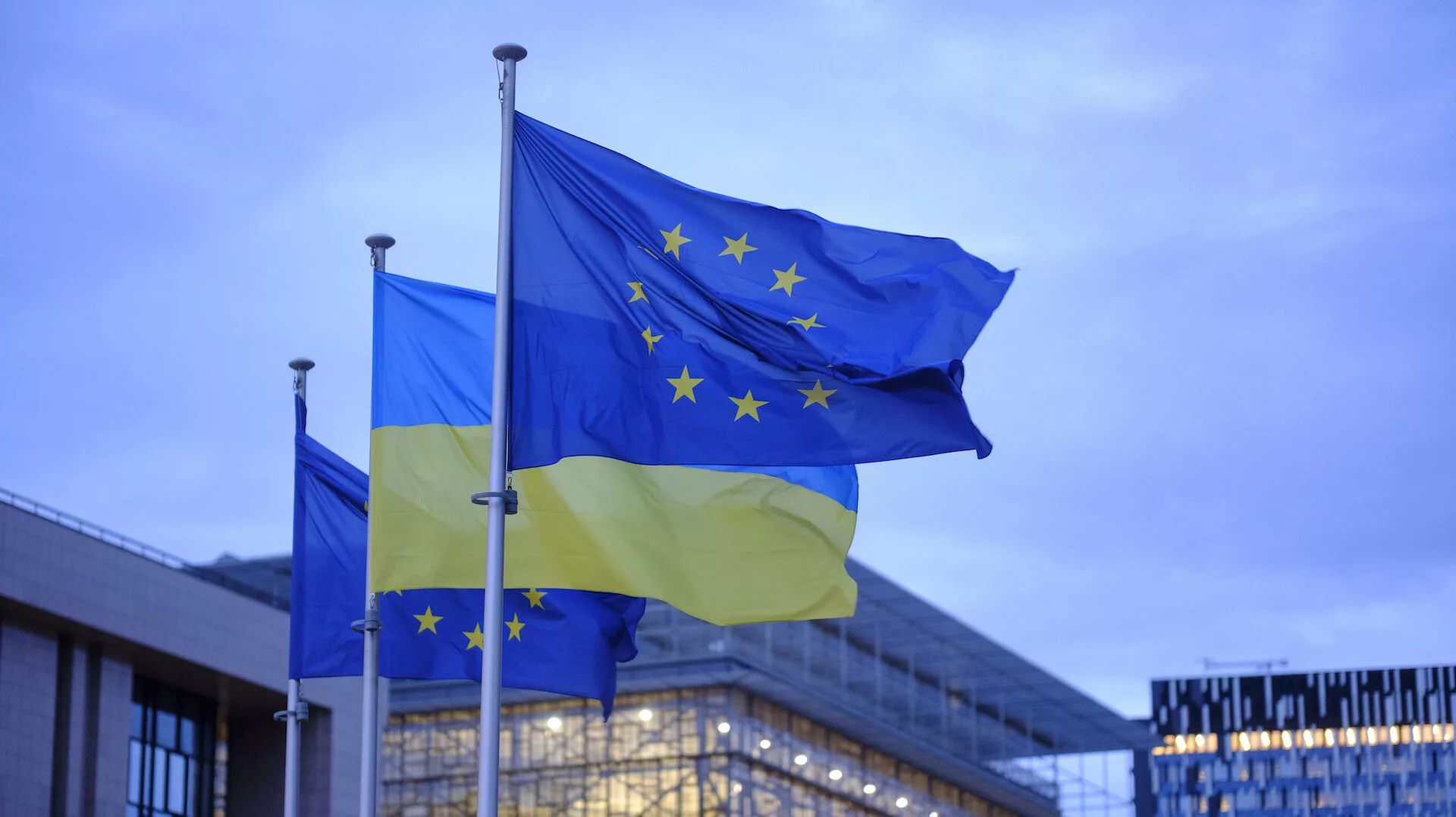
While whistleblowers are often regarded as heroes for putting their livelihoods and sometimes their lives on the line, for far too long their actions have received little support. Many countries have introduced legislation designed to encourage and protect whistleblowers, but the US has recently passed a law that is a gamechanger. Not only will the US Whistleblowers Protection Improvement Act strengthen the global reach of the US’ legal powers to any organisation that deals in dollars, it promises to protect the confidentiality of whistleblowers and reward their actions with financial incentives that could run into the $millions.
This week’s coverage of legislation, reports, analyses, & opinions spans a broad range of new and developing initiatives. We also deliver the latest developments covering Sanctions, delve into the world of Crypto & Virtual Assets, and wrap up this latest edition of the AML Roundup with a selection of items from around the world covering money laundering, bribery, fraud, & corruption.
Protecting & Rewarding Whistleblowers

How a new US law will protect the identity of whistleblowers and could reward them with $millions
This blog explores the new US Whistleblower Protection Improvement Act, a transnational law that covers any organisation that deals in dollars and enables employees to report violations anonymously and confidentially. What’s more, they stand to receive between 10 – 30% of any sanction, fine, or penalty triggered by the disclosure, regardless of the size of the fine.
The new US whistleblower law has been designed to help enforce Russia sanctions
The Anti-Money Laundering (AML) Whistleblower Improvement Act will greatly improve the ability of US law enforcement agencies to track down assets held by Russian oligarchs and sanctioned entities. While the Act broadly covers violations of both money laundering and sanctions requirements, the ability to use this law immediately to enforce all the financial restrictions placed on Russia was the main driving force behind its passage.
UK Whistleblowing: list of prescribed people and bodies updated 14 April 2023
If an employee decides to blow the whistle to a prescribed person rather than their employer, they must make sure that they have chosen the correct person or body for their issue. This official UK government site provides a list of the prescribed persons and bodies who they can make a disclosure to, together with a brief description about the matters they can report to each prescribed person.
Protect aims to make whistleblowing work for individuals, organisations and society
Every year, Protect supports around 3,000 whistleblowers who call its Advice Line. In addition, Protect works with organisations to improve their speak up arrangements and campaign for better legal protection of whistleblowers.
FCA flooded with whistleblower reports amid money-laundering crackdown
According to data from data from advisory firm Accuracy, The Financial Conduct Authority is being inundated with whistleblower reports about City firms’ anti-money laundering controls. Staff at banks and other financial institutions have delivered at least 141 reports to the watchdog since 2017.
E-Book: Are you fully compliant with the EU Whistleblower Directive?
The EU formulated what is commonly known as the European Whistleblower Directive, in order to create a minimum standard for the protection of the rights of whistleblowers and was implemented in December 2021. To ensure you are compliant with this regulation (The Whistleblower Protection Act), download this e-book to discover more about the steps needed to comply.
Webinar Workshop: Whistleblowing Essentials
Thursday 27th April – 1PM BST. This live webinar will explore the latest trends in whistleblowing management, dissect the most pressing issues and revisit the key insights of a recent whistleblowing conference held by The Law Society. Reserve your place here.
Case study: Reason shopping and the undermining of whistleblower protections
The Corporate Crime Observatory has published a new case study entitled “Reason shopping and the undermining of whistleblower protections,” which has been prepared by Stephen Holden, a Ph.D. candidate at Manchester Law School. The video recording of the case study as well as the slides used during the presentation and a list of additional relevant sources can be accessed here.
Court hears whistleblower warned EY of Wirecard fraud four years before collapse but did not act
The presiding judge in the recent Wirecard trial criticised EY for allegedly failing to act on clear evidence of fraud at the German payments group. The comments came after prosecutors’ lead witness Oliver Bellenhaus described how an internal investigation in 2019 found a software sales contract was fake. The discovery triggered a 12 million euro write-down and was shared with group auditor EY, according to Bellenhaus.
“So EY knew at the time that Wirecard was forging contracts? What were the consequences? I’m just puzzled… [EY] could have handled it differently, and the whole problem would have been discovered over a year earlier.
~ Judge Markus Födisch
Legislation, Reports, Analyses, & Opinions

Wolfsberg Group: Updated Anti-Bribery and Corruption Compliance Programme Guidance
The Wolfsberg Group has just published its updated Anti-Bribery and Corruption Compliance Programme Guidance. This document updates the 2017 version, and it is designed to promote a culture of ethical business practices and compliance with ABC legal and regulatory requirements. The Guidance is a risk-based approach for the adequate development and implementation of compliance programmes to prevent, detect, and report acts of Bribery and Corruption and identifies areas of elevated risk.
Banking associations seek to have payments removed from EU digital identity plan
The European Credit Sector Associations (ECSAs) are calling on the European Commission to remove payments from the scope of the upcoming European Digital Identity plan. The European Digital Identity (eIDAS 2.0) proposal will see the creation of digital identity wallet is a secure app that will allow citizens across the continent to verify their ID, access public and private services and store sensitive digital documents in one place. However, the ECSAs have raised concerns about the wording of the legislation saying that, “The current wording seems to imply that the full payment sphere is included in eIDAS 2.0 on a mandatory basis.”
Will SVB’s collapse and Credit Suisse’s bailout result in increased spend on risk management?
The collapse of SVB highlighted the concentration of banking functions within the tech sector and gave tech companies little time to work out their contingency plans in the event of a liquidity crunch following the collapse of their primary banking provider. This article suggests that the UK needs “greater investment in pro-active, robust, and real-time risk assessment from financial institutions.
European Anti-Financial Crime Summit 2023
The forthcoming European Anti-Financial Crime Summit in Dublin on May 25, is set to highlight the main AFC topics affecting the industry and will be covering issues such as: Sanctions; 6AMLD, Single Rule Book and AMLA; UK Economic Crime Plan; Cryptos; PPPs; Data Sharing; Gambling; and Aviation Leasing.
EU regulators propose changes to sustainable finance disclosure rules
The EU’s three primary financial regulatory agencies, the European Supervisory Authorities (ESAs), have announced a series of proposed amendments aimed at extending and simplifying the EU’s Sustainable Finance Disclosure Regulation (SFDR). Proposals include the addition of information regarding the decarbonisation targets of financial products, and the inclusion of a dashboard providing information about products’ sustainable and taxonomy-aligned investment.
AI privacy concerns about ChatGPT is the subject of new EU taskforce
The European Data Protection Board (EDPB) has formed a ChatGPT taskforce to establish privacy guidelines on the AI platform. The announcement comes after Italy’s temporary ban of ChatGPT over concerns of data breaches and privacy. Germany’s data protection commissioner responded with a statement indicating that they could follow suit. In addition, the Spanish Data Protection Authority (AEPD) are to conduct an investigation into privacy breaches by the AI tool. While Commission Nationale de l’Informatique et des Libertés (CNIL), the French regulator recorded five complaints about invasions into personal data, one of which came from an MP.
Corporate Law Update 14 Apr 2023
In this week’s update: A director of a holding company became a de facto director of its subsidiary when he became involved in its day-to-day management; The Government publishes proposed legislation for its new “failure to prevent economic crime” offence; The European Parliament has approved reforms to the EU’s regime for disclosing beneficial ownership of EU legal entities and trusts; and the European Commission is consulting on extensions to its sustainable investment taxonomy.
UK financial regulators lay out their plans for the future of open banking
The Joint Regulatory Oversight Committee (JROC) has set out its vision for a new entity to replace the Open Banking Implementation Entity. It will guide the future roadmap and the principles that will underpin a long-term regulatory framework, which the Government is intending to legislate for. The report provides a brief outline of JROC’s objectives in creating the new entity which will adhere to high standards of corporate governance, have a wide membership base underpinned by broad-based, proportionate funding and liability arrangements and ensure the needs of end users (i.e., consumers and businesses) are represented in its decision making.
Sanctions

Calls grow for UK to impose sanctions on Russian officials who jailed dissident Vladimir Kara Murza
The Times is leading calls for the UK to impose Magnitsky sanctions on the Russian officials involved in the shocking 25-year sentence against UK citizen Vladimir Kara Murza, like the US, Canada and Latvia have done, saying it’s inexplicable that the UK has yet to act.
The UK imposes sanctions on the ‘enablers’ accused of helping Russian oligarchs
The UK has imposed sanctions on the “financial fixers” who allegedly helped Russian oligarchs Roman Abramovich and Alisher Usmanov hide their assets. The Foreign Office is targeting “oligarch enablers”, whom they accuse of assisting the billionaire businessmen to shield their wealth, the resultant restrictions include asset freezes and travel bans on two Cyprus-based individuals alleged to have provided services to Abramovich and Usmanov.
Cyprus firm helped sanctioned Russian oligarch move funds
Leaked documents show Cypriot corporate service provider MeritServus helped Konstantin Malofeev, an oligarch sanctioned for supporting Russian-backed separatists in eastern Ukraine, transfer debt worth tens of millions of dollars even after he was blacklisted.
Navigating OFAC Sanctions: The importance of human expertise in financial institutions
The recent sanctions cases involving Wells Fargo and Uphold highlight the importance of maintaining a robust sanctions compliance program to avoid potential civil liability. Both cases also demonstrate the importance of taking proactive measures to address compliance failures and investing in compliance programs that reflect the growth of the business.
US sanctions suppliers of precursor chemicals for Fentanyl production
The US Department of the Treasury’s Office of Foreign Assets Control (OFAC) has designated two entities in the People’s Republic of China (PRC) and five individuals, based in the PRC and Guatemala, for supplying precursor chemicals to drug cartels in Mexico for the production of illicit fentanyl intended for US markets.
“Illicit fentanyl is responsible for the deaths of tens of thousands of Americans each year. The Treasury, as part of the whole-of-government effort to respond to this crisis, will continue to vigorously apply our tools to prevent the transfer of precursor chemicals and machinery necessary to produce this drug.”
~ Brian E. Nelson, Under Secretary of the Treasury for Terrorism and Financial Intelligence
UK imposes sanctions on art collector accused of financing Hezbollah
A high-profile art collector has been placed on a Treasury sanctions list and charged in the US over claims that he uses his collection, which has included masterpieces by Pablo Picasso, Antony Gormley and Andy Warhol, to launder money for the Lebanese militant group Hezbollah.
Crypto & Virtual Assets

EU Parliament votes for new crypto rules
The European Parliament has overwhelmingly voted in favour of the Markets in Crypto-Assets (MiCA) crypto licensing regulations. It’s the world’s first comprehensive regulation for the crypto sector, and requires firms in the sector to obtain a license in order to offer their services in the bloc and to meet money laundering and terrorist financing rules.
FATF Virtual Assets Contact Group stresses the need to regulate sector
This week, the Virtual Assets Contact Group (VACG) of the Financial Action Task Force (FATF) met in Tokyo to discuss global progress and challenges in regulating virtual assets. The Group stressed that countries worldwide need to urgently implement the FATF Standards to effectively regulate and supervise this sector.
“It is becoming more and more important to strengthen AML/CFT/CPF measures on virtual assets in light of the growing risk of virtual assets being misused for money laundering, terrorist financing and proliferation financing, including theft and misuse of virtual assets by North Korea.”
~ Suzuki Eikei Vice-Minister for Financial Services
Video: Are CBDCs a risk or an opportunity for Capital Markets?
Speaking at Innovate Finance Global Summit 2023, Dr Ruth Wandhöfer, Speaker, Adviser and Venture Partner, discussed whether different forms of digital currency and payments can live alongside each other in harmony, as well as the opportunities and risks associated with Central Bank Digital Currency.
Twitter to offer crypto trading via eToro
Elon Musk’s ambition to turn Twitter into a financial super app is advancing with the roll out of a feature that will allow its users to access stocks, cryptocurrencies, and other financial assets through a partnership with eToro. Twitter cashtags will be expanded to cover more instruments and asset classes, while providing access to a trading platform where users can buy and sell shares.
Video: Examining the real value proposition of crypto and digital assets
In this video, Kirit Bhatia, Head of Business Development, International at Ripple, explores where crypto is having a tangible and positive impact, how digital assets can generate societal, environmental and economic benefits, and how best to spot and develop these.
The bank of England’s Deputy Governor reveals how the tokenisation of money is being explored
At the recent Innovate Finance Global Summit, the Deputy Governor of the Bank of England for Financial Stability Sir Jon Cunliffe explained how the central bank is looking to secure the UK’s economic future and whether digital currencies and assets are the answer. Sir Cunliffe highlighted that although central bankers are tasked with “forecasting the economic future,” it is not “an easy task.
“While we cannot be certain how new technologies and social and economic trends will play out, we need to have though through in advance how the risks might need to be managed and, where the likelihood of major change is high, have the regulatory frameworks and powers in place.”
~ Sir Jon Cunliffe, Deputy Governor of the Bank of England for Financial Stability
Money Laundering, Bribery, Fraud, & Corruption
JPMorgan compliance staff urged bank to drop Jeffrey Epstein
According to a new court filing, compliance staff urged the banking giant to cut ties with Jeffrey Epstein not just over sex-trafficking allegations but also over money-laundering suspicions. The US Virgin Islands revealed new details of how JPMorgan handled allegations about Epstein up until 2013, the year the bank broke off its relationship with him. The bank’s asset and wealth management chief executive Mary Erdoes admitted in a recent deposition that the bank was aware by “2006 that Epstein was accused of paying cash to have underage girls and young women brought to his home.”
Investment firm fined by Malta financial watchdog for failing to carry out checks on 6,000 clients
Trive Financial Services has been fined €133,000 for failing to carry out anti-money laundering checks on 6,000 customers. Malta’s Financial Intelligence and Analysis Unit (FIAU) said Trive had acquired over 6,000 customers transferred to it by a foreign institution, but were unable to show the FIAU any evidence that it had carried out the necessary checks to ensure that the foreign institution’s anti-money laundering checks on these customers were in line with the requirements under local legislation.
Slovakia’s central bank chief fined for bribery and faces trial
The director of Slovakia’s central bank has been found guilty of bribery and fined €100,000 by Slovakia’s Special Criminal Court. Peter Kazimir, who is also a member of the European Central Bank’s governing council, received a two-year suspended sentence and could go to jail if he fails to pay the fine. He is accused of handing a bribe of €48,000 to the country’s tax office related to an investigation of private companies, and dates back to when Kazimir was Slovakia’s finance minister from 2012 – 2019.
Offshore cash and huge loans: leak reveals how Roman Abramovich funded Chelsea’s success
According to a new report from the Guardian, a network of companies was used to route fortune made from the oil fields of Siberia into Stamford Bridge. In the first two years of Abramovich’s ownership, £382m was routed via this BVI company into Chelsea, funding deals for players including the mercurial winger Arjen Robben and the free-scoring striker Didier Drogba.
How Hugo Chávez’s handshake deals with Belarus cost Venezuela $1.4 billion
Leaked documents reveal how Belarusian President Alexander Lukashenko and his Venezuelan counterpart, Hugo Chávez, struck several wasteful deals including one that allowed Belarus to avoid paying for $1.4 billion for oil it received from Venezuela.
Credit Suisse accused of hindering probe into Nazi-linked accounts
US senators have accused Swiss bank Credit Suisse of limiting the scope of an internal investigation into Nazi clients and Nazi-linked accounts, including some that were open until just a few years ago.
“Credit Suisse’s decision to stop its review midstream has left many questions unanswered, including questions about the thoroughness of its prior investigative efforts, the extent to which it served Nazi interests, and the Bank’s role in servicing Nazis fleeing justice after the war,”
~ Jenner & Block lawyer Neil Barofsky
Six charged with money laundering activity at former Danske Bank Estonia
Six former employees of the foreign banking unit of the Danske Bank Estonia branch are alleged to have orchestrated large-scale money laundering to the tune of US$1.6 billion US and €6 million at its Estonian branch in the years 2007 to 2015. They are accused of intentionally concealing the real origins of the funds suspected criminal origin which were transferred to accounts at Danske.
RiskScreen webinar
Lessons and warnings from America’s leading whistleblower lawyer

Tuesday, Apr 25, 2023, 4:00 PM – 5:00 PM BST
Join us for this unmissable webinar where Stephen Platt, RiskScreen CEO will interview the world’s foremost whistleblowing lawyer, Stephen M. Kohn, Founding Partner of Kohn, Kohn & Colapinto LLP.
Having represented several whistleblowers including former UBS employee Bradley Birkenfeld, Stephen Kohn will discuss the hugely important implications of the extension of US whistleblowing provisions to AML.
This is a must attend webinar for all compliance professionals eager to understand the risks posed by whistleblowers to organisations not only in the US but to any organisation subject to US jurisdiction through the US dollar.
Published by: riskscreen.com




